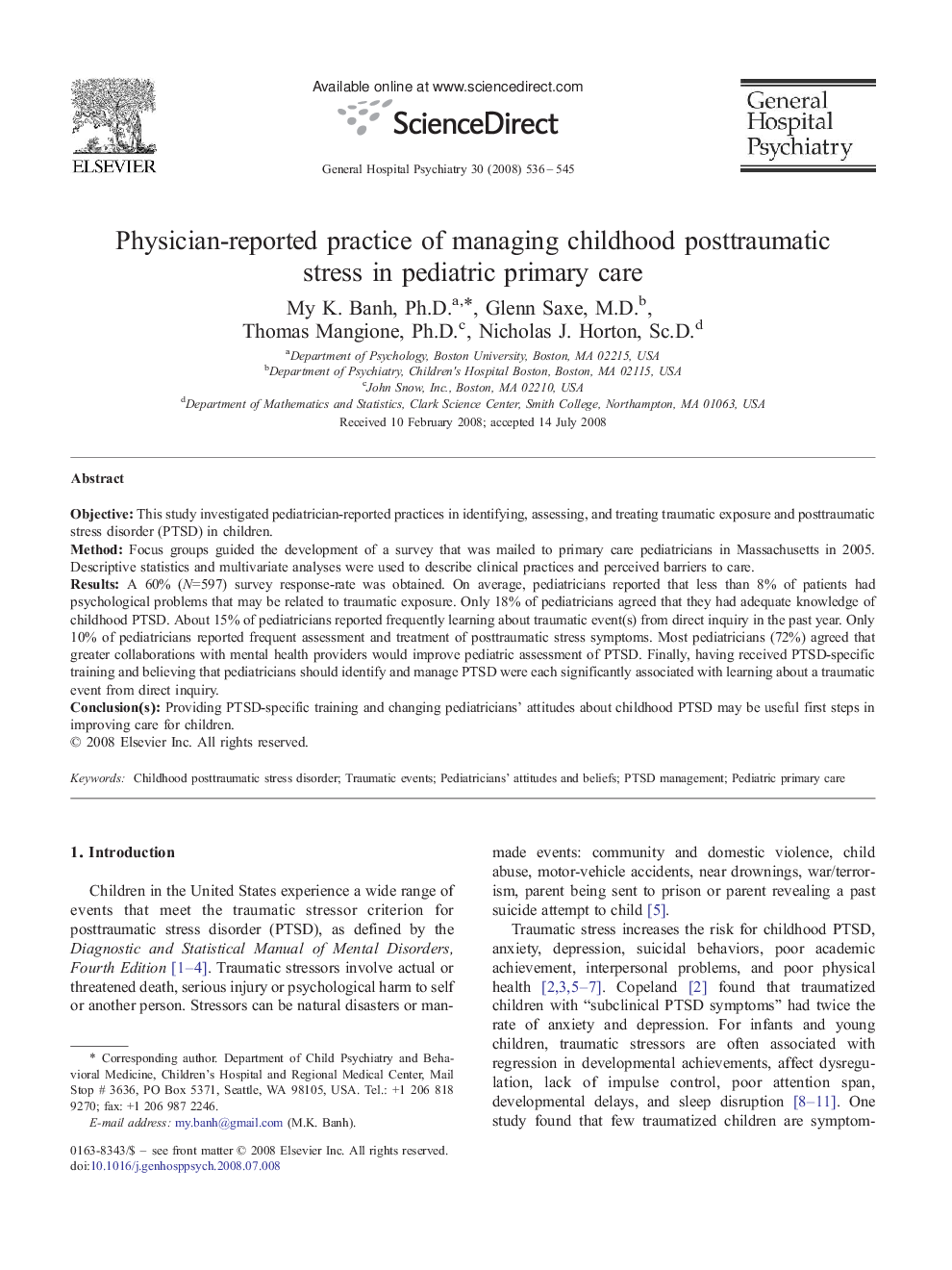| Article ID | Journal | Published Year | Pages | File Type |
|---|---|---|---|---|
| 3238534 | General Hospital Psychiatry | 2008 | 10 Pages |
ObjectiveThis study investigated pediatrician-reported practices in identifying, assessing, and treating traumatic exposure and posttraumatic stress disorder (PTSD) in children.MethodFocus groups guided the development of a survey that was mailed to primary care pediatricians in Massachusetts in 2005. Descriptive statistics and multivariate analyses were used to describe clinical practices and perceived barriers to care.ResultsA 60% (N=597) survey response-rate was obtained. On average, pediatricians reported that less than 8% of patients had psychological problems that may be related to traumatic exposure. Only 18% of pediatricians agreed that they had adequate knowledge of childhood PTSD. About 15% of pediatricians reported frequently learning about traumatic event(s) from direct inquiry in the past year. Only 10% of pediatricians reported frequent assessment and treatment of posttraumatic stress symptoms. Most pediatricians (72%) agreed that greater collaborations with mental health providers would improve pediatric assessment of PTSD. Finally, having received PTSD-specific training and believing that pediatricians should identify and manage PTSD were each significantly associated with learning about a traumatic event from direct inquiry.Conclusion(s)Providing PTSD-specific training and changing pediatricians' attitudes about childhood PTSD may be useful first steps in improving care for children.
